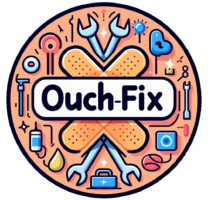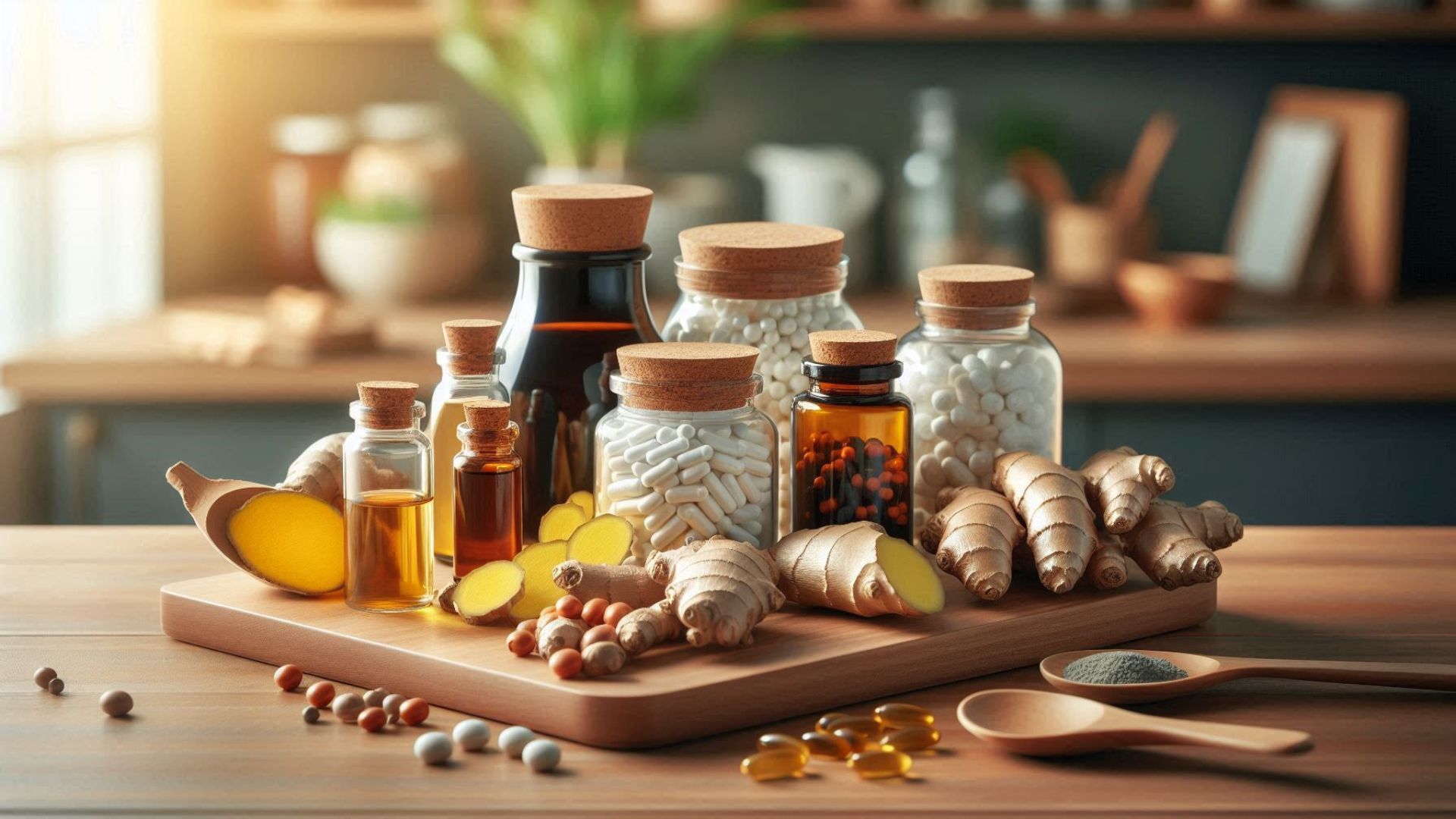Muscle, joint, and back pain—collectively known as musculoskeletal pain—affects millions of people worldwide. Whether it’s from an intense workout, aging, or chronic conditions like arthritis, finding safe and effective ways to manage pain is essential. While conventional medicine often relies on medications or procedures, many people are turning to natural supplements and complementary therapies to reduce soreness and inflammation.
As a Physical Medicine and Rehabilitation (PM&R) specialist, I’ve seen firsthand how a personalized approach to pain management—blending lifestyle changes, natural remedies, and medical interventionscan make a significant difference. In this guide, we’ll explore natural supplements that may help ease muscle soreness, their scientific backing, safety considerations, and practical tips for integrating them into your routine.
The Role of Supplements in Pain Management
Pain relief is a multi-faceted challenge. Nonsteroidal anti-inflammatory drugs (NSAIDs) like ibuprofen or naproxen are effective in the short term but can cause gastrointestinal issues, kidney problems, or cardiovascular risks if used long-term. Natural supplements may provide an alternative or complementary approach with fewer side effects, although they are not a one-size-fits-all solution.

Supplements can work by:
- Reducing inflammation
- Supporting joint and connective tissue health
- Improving blood circulation
- Regulating pain signaling pathways
It’s essential to combine supplements with lifestyle measures—exercise, proper nutrition, and rest—for optimal results.

Also Read: What Ergonomic Practices Prevent Shoulder Pain?
Safety First: Before You Try Supplements
Before adding any supplement to your routine, consult your healthcare provider. Supplements can interact with medications or worsen certain health conditions. For instance:

- Blood-thinning medications can interact with omega-3s or turmeric.
- High-sugar cherry juice may not be suitable for people with diabetes.
- CBD oil may affect liver metabolism of prescription drugs.
Additionally, the supplement industry is not as tightly regulated as pharmaceuticals. Look for third-party testing, reputable brands, and evidence-based research from sources like the National Center for Complementary and Integrative Health (NCCIH).
Natural Supplements to Consider

1.Turmeric
Turmeric, a root in the ginger family, is rich in curcumin, a powerful anti-inflammatory compound. Curcumin can reduce inflammatory markers linked to joint pain and muscle soreness.
Tips for effectiveness:
- Take turmeric with fatty oils (like olive or avocado oil) and black pepper to boost absorption.
- Start with 500–1,000 mg of standardized curcumin per day.
- Allow 3–6 months to evaluate results.
Pro tip: If turmeric capsules feel expensive or inconvenient, try adding turmeric powder to meals, smoothies, or golden milk.
2. Cherry Juice Extract
Cherries are packed with anthocyanins, natural compounds with anti-inflammatory properties. Studies suggest tart cherry juice may help reduce post-exercise muscle soreness and inflammation.
Usage tips:
- Drink 8–12 oz of tart cherry juice daily, preferably without added sugars.
- Consider freeze-dried cherry supplements for convenience.
Caution: High sugar content can spike blood glucose; diabetics should consult a doctor first.

Also Read: How do Alternative Medicine Experts View Natural Pain Remedies?
3. Omega-3 Fatty Acids (Fish Oil)
Omega-3s, found in fatty fish like salmon, sardines, and tuna, support joint health and reduce swelling. Research shows omega-3 supplementation may benefit people with rheumatoid arthritis and other inflammatory conditions.
Expert advice:
- Aim for 1–3 grams of combined EPA and DHA per day from food or high-quality supplements.
- Plant-based omega-3s (flaxseeds, chia seeds, walnuts) offer alternative options for vegetarians.
Tip: Fatty fish is generally better absorbed than supplements.
4. Collagen
Collagen is a structural protein that supports skin, tendons, ligaments, and cartilage. Some research suggests collagen supplementation may reduce joint pain and improve recovery from muscle injuries.
Practical use:
- Collagen powders can be mixed into smoothies, coffee, or soups.
- Protein-rich foods like chicken, fish, eggs, and citrus fruits boost natural collagen production.
Example: I personally found collagen powder beneficial after a hamstring injury—pain decreased and flexibility improved within months.
5. Chondroitin and Glucosamine
These compounds, naturally present in cartilage, may decrease with age. Supplementation can:
- Reduce joint stiffness
- Improve mobility
- Ease pain in osteoarthritis patients
Tip: Often combined in capsules or tablets; talk to your doctor about the right dosage for your condition.
6. Boswellia (Indian Frankincense)
Boswellia serrata contains boswellic acids, which block inflammatory pathways. Studies indicate it can help with osteoarthritis, inflammatory bowel disease, and general joint pain.
Usage: Typically taken in capsule form (300–500 mg, 2–3 times daily). Look for standardized extracts for best results.
7. Cannabidiol (CBD) Oil
CBD oil, derived from the hemp plant, interacts with the body’s endocannabinoid system to influence pain, inflammation, and mood. Research is still emerging, but preliminary studies suggest potential benefits for muscle soreness and joint pain.
Important notes:
- FDA has not approved over-the-counter CBD for pain relief.
- Quality varies widely; look for lab-tested products.
- Start with low doses and monitor effects.
Don’t Overlook Topical Creams
Topical solutions can provide localized relief without affecting the whole body. Examples include:

- Capsaicin cream: Derived from chili peppers, can reduce joint pain by up to 50% over time.
- Menthol or camphor gels: Provide a cooling sensation that temporarily eases discomfort.
- CBD-infused creams: May help reduce inflammation locally (research ongoing).
Tip: Apply creams consistently, as directed, for best results..

Also Read: What is the Best Over‑the‑Counter Pain Relief Cream for Joint Pain?
Keep Moving: ‘Motion Is Lotion’
Staying active is critical. Muscle and joint stiffness worsen with inactivity, increasing pain. Regular movement enhances blood flow, flexibility, and tissue repair.
Exercise recommendations:
- 150 minutes per week of moderate aerobic exercise (walking, swimming, cycling)
- 2 strength-training sessions per week
- Low-impact alternatives: chair yoga, Tai Chi, or Qigong
Pro tip: Begin slowly and gradually increase intensity, especially if recovering from an injury or dealing with chronic pain.entle exercise into your routine. Your muscles—and your future self—will thank you.
Expert Tips for Maximizing Supplement Benefits

- Combine wisely: Use supplements alongside lifestyle changes, physical therapy, or prescribed medication for a holistic approach.
- Track progress: Maintain a journal to note improvements, side effects, and daily routines.
- Stay informed: Follow trusted sources like NIH Office of Dietary Supplements or peer-reviewed journals.
- Avoid “stacking” multiple untested supplements: This can obscure which product is effective and increase risks.
- Consistency is key: Supplements often require weeks or months to show noticeable results.
Conclusion & Call to Action
Natural supplements can be valuable tools in managing muscle soreness and joint pain, but they are most effective when combined with movement, nutrition, and professional guidance. Turmeric, cherry juice, omega-3s, collagen, glucosamine, Boswellia, and CBD oil each offer unique benefits backed by emerging research.
Remember, the key to long-term relief is a personalized, multi-faceted approach. Talk to your doctor, track your progress, and stay consistent with lifestyle and supplement strategies.
Take action today: Start with one or two supplements, monitor results, and integrate gentle exercise into your routine. Your muscles—and your future self—will thank you.
FAQs About Natural Supplements and Muscle Soreness
Q1. Are natural supplements safer than prescription medications?
Not always. Supplements can interact with medications and have side effects. Consult a healthcare professional before starting any new supplement.
Q2. How long does it take to notice improvements?
It varies. Some supplements, like turmeric, may take 3–6 months, while others, like topical creams, can provide faster relief.
Q3. Can I take multiple supplements together?
Yes, but it should be done cautiously and ideally under professional supervision to avoid interactions.
Q4. Are natural supplements effective for chronic conditions like arthritis?
Research shows some, like glucosamine, omega-3s, and Boswellia, may help reduce symptoms, but results vary by individual.
Q5. What’s the best form of collagen for joint pain?
Hydrolyzed collagen (peptides) in powder or capsule form is easily absorbed. Pairing with vitamin C can enhance effectiveness.




